Why Won’t My Car Start (15 Possible Reasons)
-
Chris Dinesen Rogers
- Last updated:
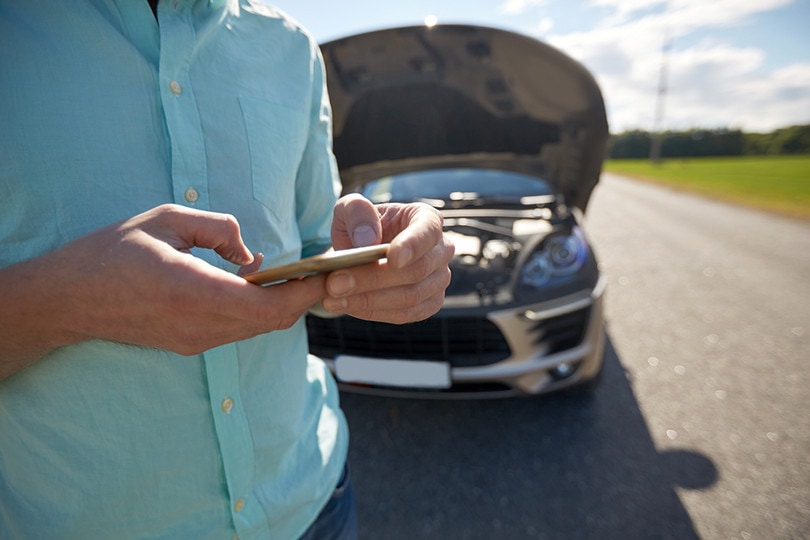
You’re getting ready to go out or drive home, and your car won’t start. As luck would have it, it’s usually at night, during the weekend, or on holiday. This situation is something a lot of people have experienced at one time. While we always hope for a quick fix, it often means an expensive tow and repair bill. It’s sometimes challenging to pinpoint the problem since not starting is a symptom of something else.
Fortunately, you can check a few things to get back on the road quickly. Other issues may have telltale signs that at least let you know what’s wrong and what it may cost. After all, the average age of a passenger vehicle is 12.1 years. Something’s bound to happen. We hope you don’t ever find yourself in this predicament. However, here’s a rundown of what may be causing the problem if you do.
Why Won’t My Car Start (15 Reasons)
1. Out of Gas
We have to address a few of the no-brainer problems first just to rule out these causes. It is not a common issue with newer vehicles with all their warning systems. Even older ones may alert you when the fuel is running low. However, it is sometimes hard to know how far you can go before you’re out of gas. A car will typically try to turn over, and the interior lights will still work.
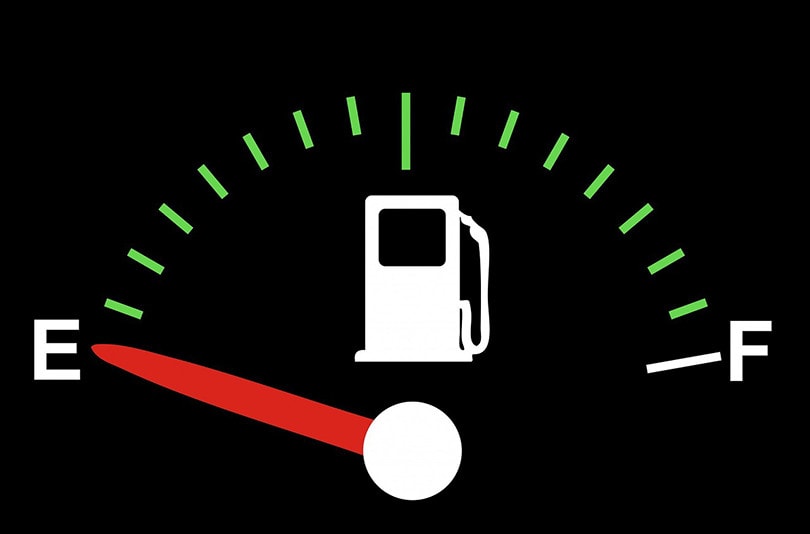
2. Wrong Gear or Pedal
Some vehicles won’t start unless you have them in park. That’s the first thing you can check if your car isn’t starting. Bear in mind that vehicles with a push-button start won’t turn over unless you have your foot on the brake. The symptoms are usually the same as the previous one. Make sure you’re in the right gear and are braking it.
3. Flooded Engine
If you’ve been trying to start your car to no avail and smell gasoline, you’ve probably flooded the engine. The air-fuel balance is out of whack. You have several options. You can wait it out and let the fumes evaporate. You can also speed things up by popping the hood open and giving it another shot. Finally, you can put the pedal to the metal without bumping it.
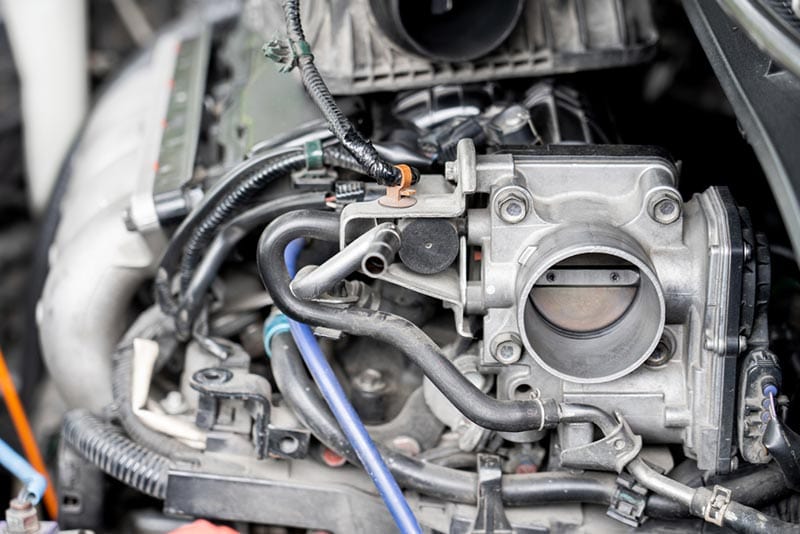
4. Dead Key Fob
While key fobs are convenient, they’re not infallible. Batteries die, and you need to resort to other ways to start your vehicle. Fortunately, car manufacturers had this dilemma on their radars when designing these vehicles. It will vary with the make and model. A common backup is a hidden key in the fob or handle. You can also try using it to press down your car’s start button.
5. Dead Battery
The lifespan of a vehicle battery varies with the type and usage that it gets. You can expect to get up to five years on one. When it’s tapped, you probably won’t hear your car even trying to turn over with no instrument or interior lights working either. The safest fix is to keep a jump start box in your trunk. If it starts, your next stop is getting a replacement battery.
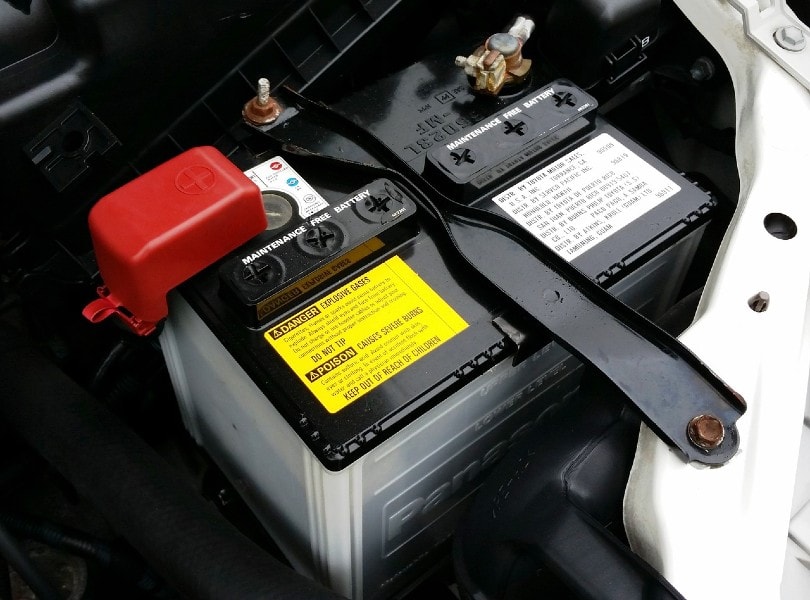
6. Corroded Battery Connections
Corroded battery connections can interfere with the energy flow to start your car. You can try knocking off some rust and debris or moving the wires with a heavy object. If you’re lucky, it’ll be enough to get your vehicle going. Of course, the fix is to clean the terminals thoroughly as part of your routine car maintenance.
7. Shot Alternator
Now, we’re starting to get to the more serious and expensive reasons that your car won’t start. The alternator ensures that your battery charges. If it’s not, you may notice symptoms such as dimmed headlights or accessories not working properly. Often, a warning light will alert you to an electrical problem. We strongly urge you to get your vehicle in the shop as soon as you can.
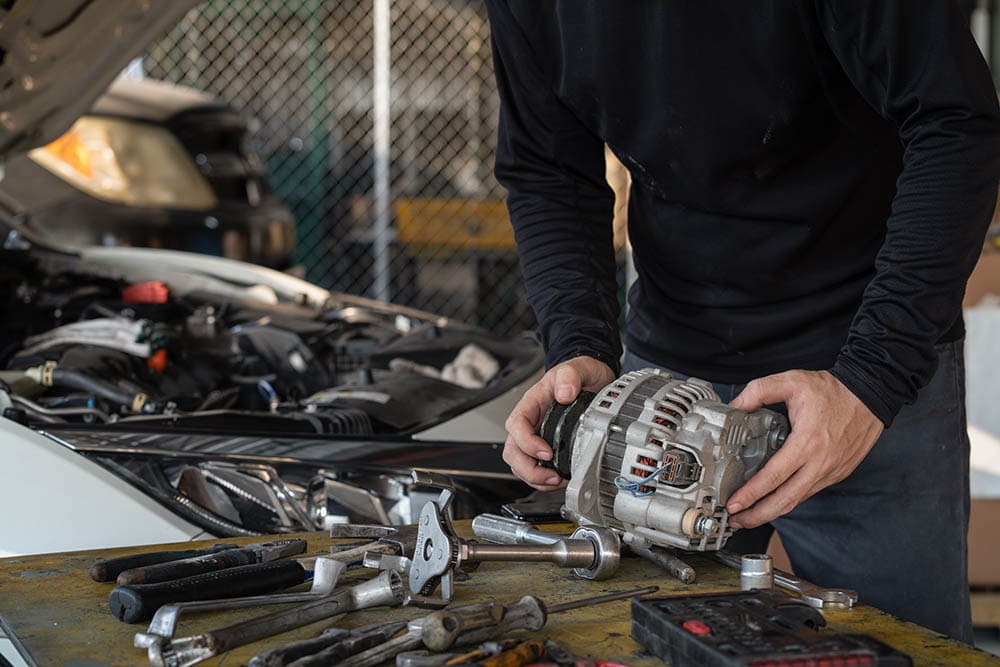
8. Clogged Fuel Filter
The only good thing about a clogged fuel filter is that you’ll likely notice the telltale signs before it goes bad on you. Misfiring and lackluster performance are some of the classic symptoms. You may even feel the vehicle shaking. It’s not the most expensive repair, but it’s certainly one that you shouldn’t ignore because of the possible damage it could do.
9. Defective Ignition Switch
A defective ignition switch often shows signs that something is wrong before it fails. It can mimic a fuel filter problem because your vehicle will stall frequently. It may not stay running if you manage to start it. Sometimes, it’s just a matter of some WD40 to get things running smoothly again. If you’re having trouble turning the key, don’t force it. Instead, get it replaced before the key breaks.
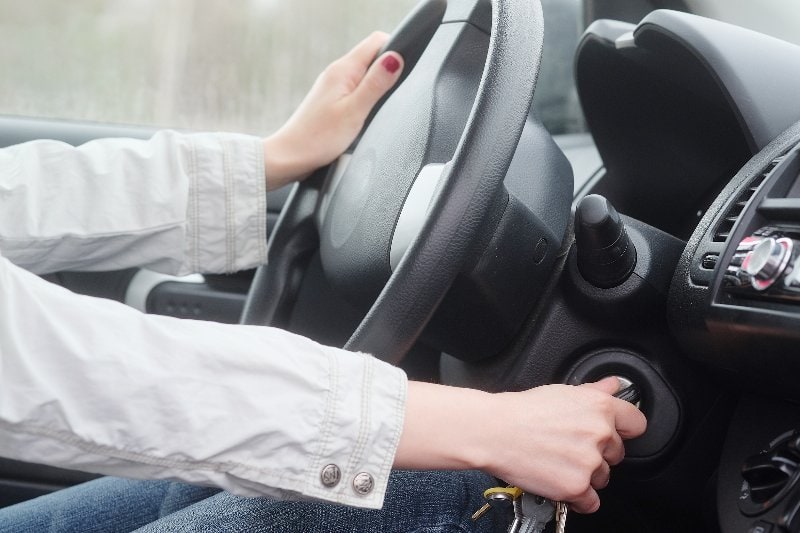
10. Bad Fuse
Bad fuses are vexing issues. The chances are you may not know where to look for the box until something goes wrong. It’s an excellent reason for keeping your owner’s manual handy. A fuse in a car works similarly to a circuit breaker. It takes one for the team to prevent significant damage. If you can locate the right one, it’s an easy fix—assuming you can get to it.
11. Spent Spark Plugs
As people keep their vehicles longer, you may experience this preventable issue causing your car not to start. You’ll need to replace your spark plugs as part of its routine maintenance. The timing varies with the make and model of your ride. If you have the right tools, it’s an easy fix. Inevitably, there are a few that are almost impossible to reach, making it a pro job.
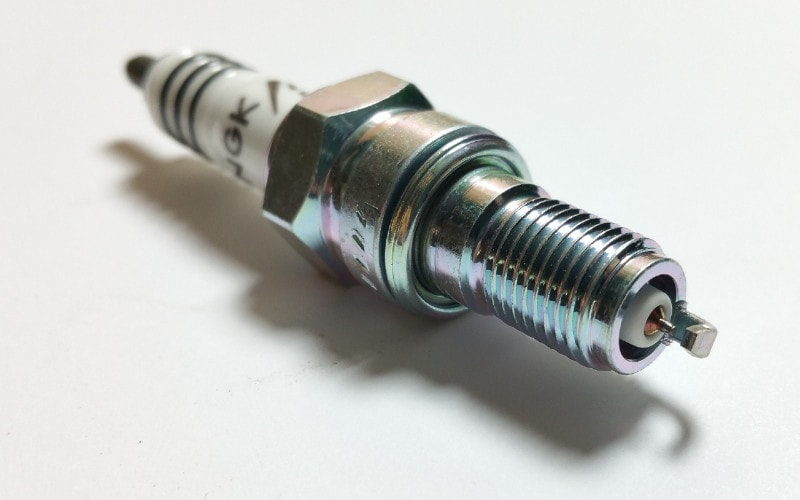
12. Bad Starter
A bad starter says it all. It’s often a spendy repair with both labor and parts. Usually, it rears its ugly head before you find yourself stranded. Classic signs are unusual noises when you try to start your car. You may find that the interior lights work, but the engine doesn’t. You can distinguish it from a battery problem because of the clicking sound your vehicle will make.
13. Fuel Pump Problem
Poor performance is a sure sign of a fuel pump issue, particularly if your ride struggles going up hills. It’s simply not getting enough juice to get the job done. You may also notice that your fuel efficiency is tanking. Keeping your car fueled up can help prevent it. If your car is acting up, it’s time to make an appointment at the shop. It’s a pro job that you shouldn’t delay.
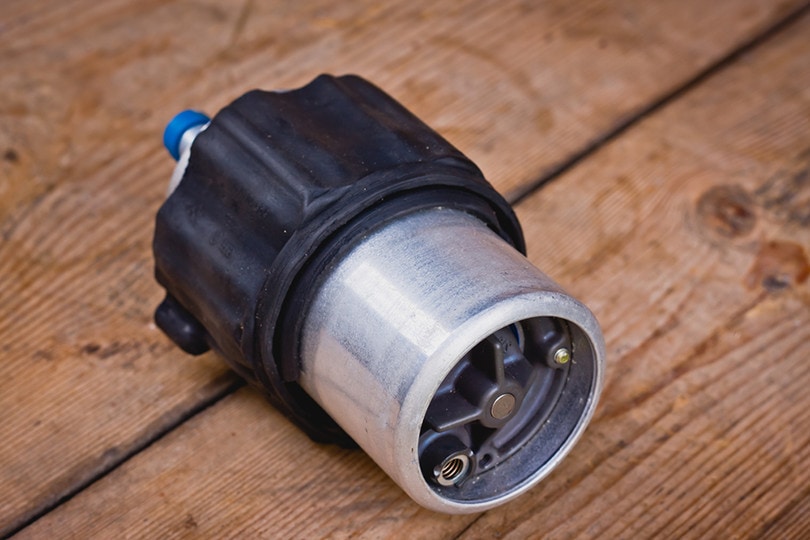
14. Anti-Theft Device Issue
Anti-theft devices are excellent features that we appreciate. However, they are only good when they’re working correctly. Otherwise, you’re going to get cut off, too. While your car might not start, everything else may seem to work okay, including that theft warning light on your dashboard. The electronics with these devices take it off the DIY list.
15. Timing Belt
A bad timing belt or chain is another reason your car won’t start, but the interior lights and accessories will. You may hear a clicking noise because the vehicle can’t turn over because the belt has failed. It can spell big trouble if it happens while you’re driving since it could take out your engine with it. It is a job for the shop but be prepared to dig deep to pay for it.
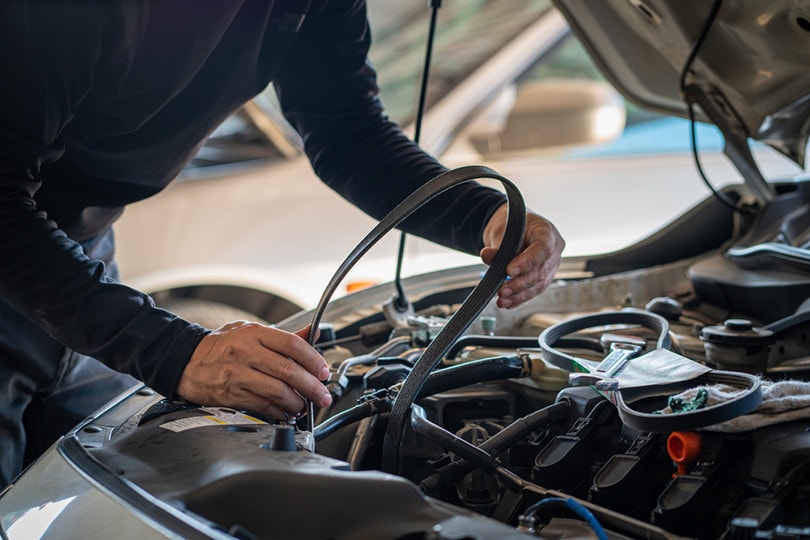
See Also:
Preventing Starting Issues
It’s impossible to prevent all car issues that may cause it not to start. However, there are some things you can do to catch some of them early or have solutions on hand. Regular maintenance following the manufacturer’s recommendations is the best thing you can do. Simple tasks, such as changing the oil or spark plugs, can go a long way toward keeping you on the road.
We also suggest the portable jump starter, as we mentioned earlier. You can solve some key fob issues by installing an app on your smartphone to take over the task. Of course, adding roadside assistance to your auto insurance is invaluable. Even if you never use it, knowing you can get a tow, if necessary, makes the modest monthly payment immaterial.
Conclusion
An unresponsive vehicle is the bane of all car and truck owners. Inevitably, the time couldn’t be more inconvenient when it happens. Fortunately, there are some things you can do to prevent it or at least do a quick road fix. That can save you a lot of time and money. After all, prevention is usually the cheaper way to go.
Featured Image Credit: Syda Productions, Shutterstock
Contents
